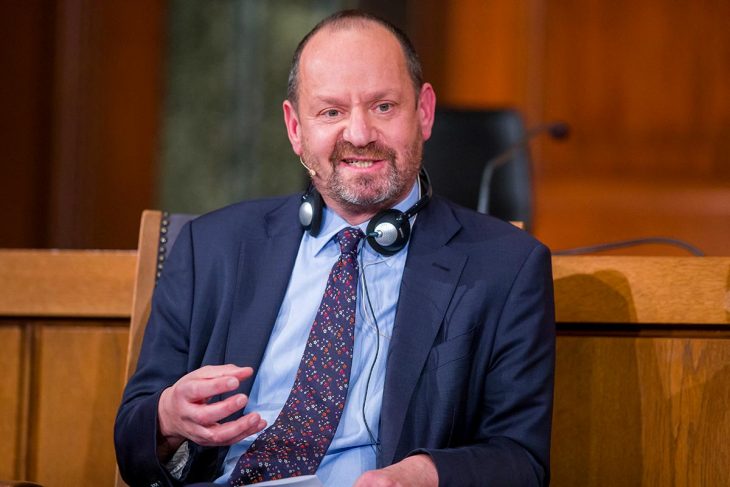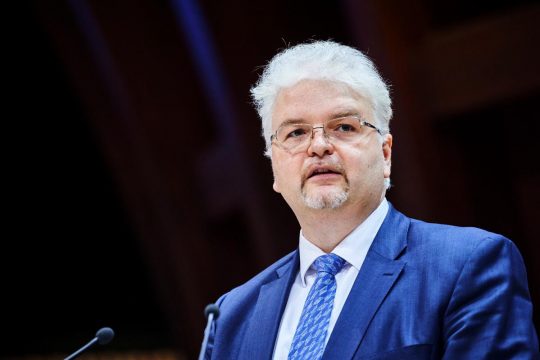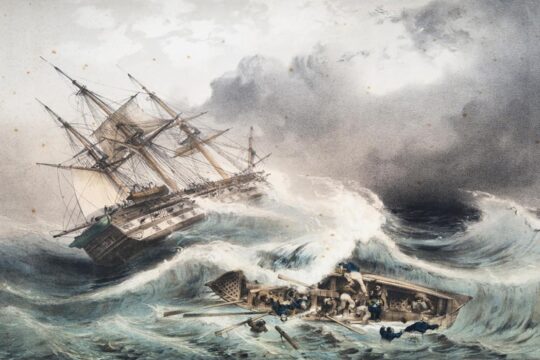To listen to the podcast, click on the "play" button below:
Philippe Sands is back on the literary scene with the release of his new book The Last Colony: A Tale of Exile, Justice and Britain’s Colonial Legacy. In it, he recounts the defence before the International Court of Justice (ICJ) of the rights of the people of the Chagos Islands, an archipelago in the Indian Ocean whose population was forcibly expelled by Britain in the early 1970s. A story of the British colonial past that still resists the present. A story of how one fights for decolonisation in the 21st century in a court that is imbued with the political, national and cultural identities of its judges.
"Every international judge comes to their case with baggage. And the baggage includes their own personal background, their own history, their own ideas, their own culture, their own ideology, their own nationality and their own colour," Sands says. "These things do really matter."
The decolonisation of the Chagos Islands and the new world order
In 1973, the UK forcibly displaced the population of Chagos islands, so that it could be used as a US military base. Most of the Chagossians resettled in Mauritius. While the case went onto the International Tribunal for the Law of the Sea, in 2017 the country petitioned the United Nations to seek an advisory opinion for the Chagos people before the International Court of Justice. Two years later, the ICJ found that the UK administration of the Chagos archipelago was unlawful and the UN voted for the UK to leave the island. But the UK does not accept the ruling.
In discussing how this case was litigated over the last 10 years, how it was designed and which legal strategy was implemented, Sands wants the readers to understand how international courts actually function and how the race and cultures of the different judges come into play.
The lawyer tells how he and his team took into account the composition of the court when drafting their questions and building their arguments. "Look at the composition of the panel. Who is the majority? Three white Anglo-Saxon men - from the Commonwealth. Who is the dissent? A black man and a German one. It may be that it is entirely coincidental. Or it may not.”
There is little doubt about his opinion. "There is an issue of identity and race," he says. "There is a political element, there is a national element, and you've got to be acutely aware of it.” And this reality - which shakes the myth of impartial and independent justice - often nestles in the dissenting opinions of judges. To understand how international justice works, he warns, "you need to read dissenting opinions".
The Chagos case illustrates the tipping of the balance of power between small states and big powers. It illustrates the inevitable end of the British occupation of the archipelago. "The position is untenable. It's over for the British. The only question is when it will be sorted", he warns. "The decision by the ICJ signaled a different world order.”
Ukraine: coming news on a special court on the crime of aggression?
Sands' family history also links him intimately to Ukraine. He told it in his best-selling book "East West Street: On the origins of ‘genocide’ and ‘crimes against humanity’". The day after the Russian invasion last February, Sands became the main promoter of the creation of a special tribunal on the crime of aggression. And he is not giving up.
"Why do we need another court?" to try Russia's crime of aggression, ask podcast hosts Janet Anderson and Stephanie van den Berg. "In this case it is the most important of all the crimes. It is the crime from which all other crimes flow. I think it will be a travesty if in five years' time we have trials in The Hague or in Kiev or other parts of the world of a group of relatively low-level military or paramilitary types for heinous acts committed on the territory of Ukraine but the top table gets off scot-free," replied Sands. "There will soon be an announcement of the establishment of a new office of a special prosecutor for the crime of aggression in Ukraine," he reveals, "and it must be in The Hague”. According to him, "the longer this dreadful conflict goes on, the more possible this development becomes”. And it is the political evolution of some major European powers that will, once again, tip the balance.
 ASYMMETRICAL HAIRCUTS
ASYMMETRICAL HAIRCUTS
This podcast has been published as part of a partnership between JusticeInfo.net and Asymmetrical Haircuts, a podcast on international justice produced from The Hague by journalists Janet Anderson and Stephanie van den Berg, who retain full control and independence over the contents of the podcast.







